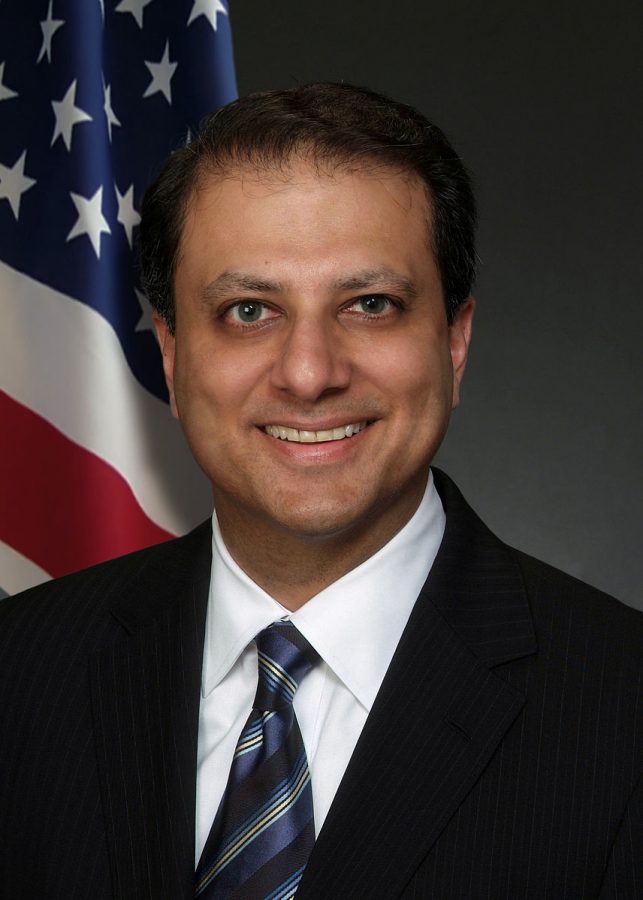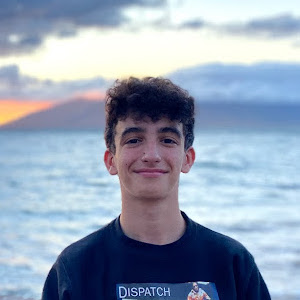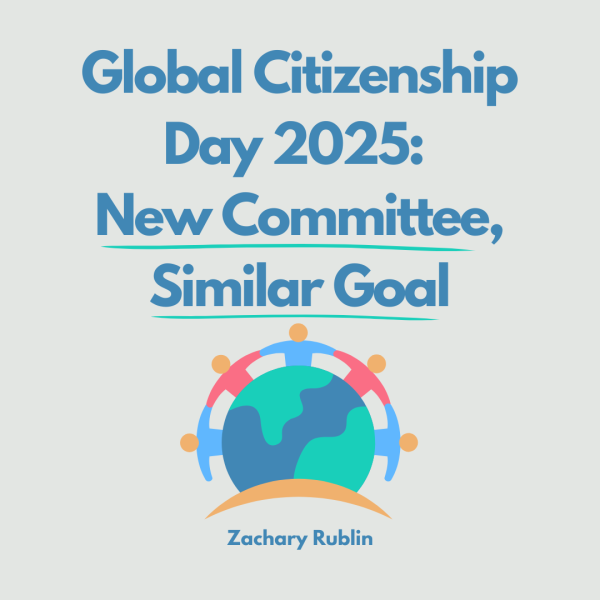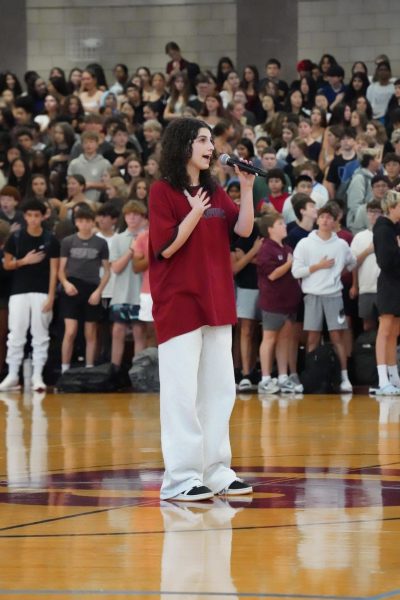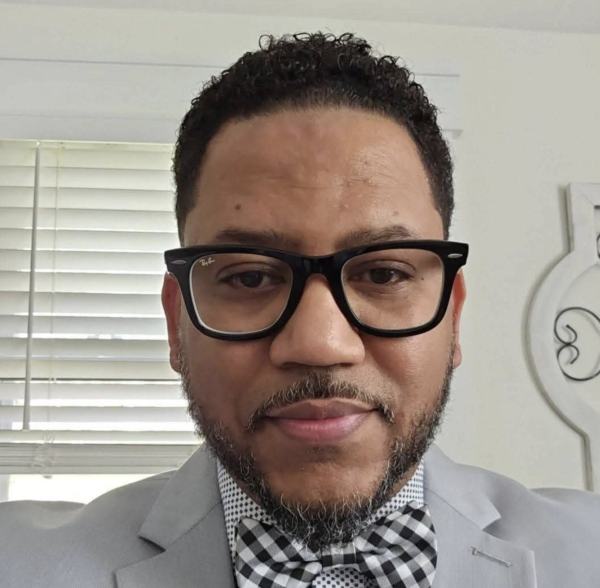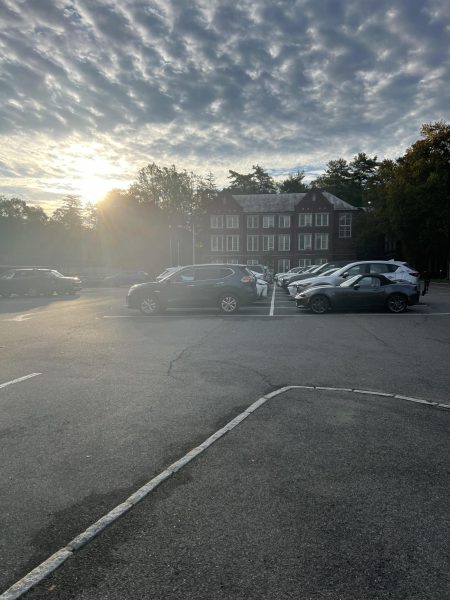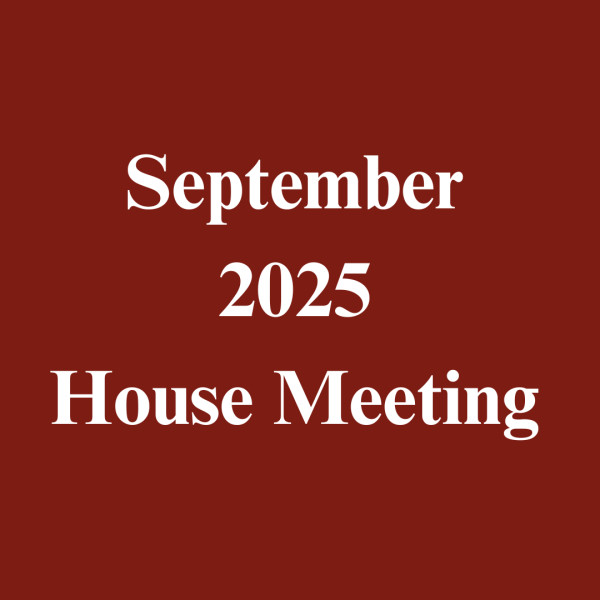Q & A: Former U.S. Attorney Preet Bharara Sheds Light on U.S. Politics Today
Bharara, who has worked as a U.S. Attorney for many years, reflects on his tenure under President Trump and the political stage today.
As Donald Trump’s presidency nears its end, we have seen a contested election, an attack on the United States Capitol, and Trump’s second impeachment, all while COVID-19 continues to wreak havoc on the United States and the rest of the world.
Preet Bharara was the United States Attorney for the Southern District of New York from 2009 up until 2017, when he was fired by President Donald Trump after he stood up to him. Maroon interviewed Bharara about his view on recent events that have occurred in America, the various ways that high school students can effect change, and on how the United States can begin to heal from these tumultuous times. Bharara’s personal interactions with Trump, which included meeting with Trump and speaking with him over the phone, have given him a unique perspective on the way the President behaves. Additionally, his distinguished tenure as United States Attorney for the Southern District of New York provides him with valuable insight into the state of the nation.
Maroon: As the sun sets on Trump’s presidency, we’ve seen him contest a fair election, make an inappropriate request on a phone call with Georgia Secretary of State Brad Raffensperger, incite an attack on the Capitol building, and be impeached for the second time. I’ve read about your experience with Trump firing you after you declined a one on one phone call from the Oval Office because you thought it was inappropriate. Raffensperger and Trump’s phone call reminded me of your experience with Trump. Do you feel, after your personal experience with Trump, that you saw this tumultuous presidency with two historic impeachments coming?
Bharara: No, I don’t know that I saw two impeachments coming, but I did see parallels in the experience of Raffensperger and mine. Back at the time, it was March 9th of 2017. The sitting President called me when I was the sitting United States Attorney in the Southern District with jurisdiction over things important to Trump, including potential investigations into his businesses, his foundation, his properties and a bunch of other things. And so I feel like Raffensperger, three and a half years later, was in the same spot that I was in because the President has a certain M.O. His M.O. is to call people inappropriately, ask them to do things that would demonstrate loyalty to him as opposed to the law, the Constitution, their oath, and to the public. And so it was a tough dilemma for Raffensperger, who has gotten some criticism for recording the call. But I’ll tell you that back in March of 2017 there were already signs that Trump is a person who could not be relied upon to remain appropriate and report correctly and truthfully the substance of a conversation. And so, I actually considered with my deputy very briefly the possibility of returning the call and recording it like Raffensperger later did. But back at the beginning of 2017, it seemed a bridge too far for an employee of the executive branch, which is what I was, to record a sitting President of the United States without his knowledge. So I didn’t do that. But I do completely understand why Raffensperger did. I think he provides a valuable historical record. And I think with respect to your question about two impeachments, I think it does not come as a surprise at all, given how he behaved with me, given how he behaved with Jim Comey, given how he behaved with Jeff Sessions, given how he behaved with the President of Ukraine, given the way he behaved with Raffensperger in Georgia, that he would face some consequences at some point. So it’s not a surprise that he did terrible things. It comes as a little bit of a surprise to me that he still stands a chance of avoiding conviction in the Senate despite his repeated misconduct.
Maroon: Did President Obama ever call you?
Bharara: I used to joke publicly. I said, ‘You know, many times President Obama called me?’ I think I used to say I cherish all those times that President Obama did not call me because I served under Obama for seven years and never received a phone call. And by the way, to be clear, the mere fact of a phone call is not by itself necessarily illegitimate. It’s that [Trump] does it in an inappropriate and surreptitious way. I think it’s the case that with Raffensperger, White House counsel, and the White House lawyers didn’t know about the call until afterward. And similarly, in my case, the reason I didn’t think it was appropriate to have the conversation and not just for my protection, also for his protection, was that the Attorney General was not looped in, the Deputy Attorney General was not looped in. So it’s this random call out of the blue with someone with whom I have no relationship going outside of the chain of command that made my antenna go up.
Maroon: What are some ways that you think high school age students can get involved in politics?
Bharara: First of all, it is my observation that young people today, even as young as high school students, are more actively engaged in the life of their democracy than my generation was, and many generations in between. I’m Gen X. And the level of participation, not just in politics, but in issues, that shouldn’t take a political side, whether it’s gun violence after Parkland, climate change, women’s rights, equality for black and brown people, or criminal justice reform after the [killing] of George Floyd, there is a level of engagement and interest on the part of young folks that’s really inspiring to me. And I talk about that sometimes at the end of my podcast, your parents, which includes me and other parents of people in your generation, we have not fixed a lot of things, we just put up with a lot of things. So it is a joyous thing to see so much engagement.
Bharara then talked about an activity he did with his two sons this past summer, where his sons suggested political candidates whose campaigns he should help. Bharara would post their recommendations on his Twitter, where he has a following of over one million.
Bharara: So we did this fun exercise over the summer because I have a big Twitter following. And it was an interesting exercise and it got my sons to understand what it takes to run for office, win office, and study the political system a little bit. But I would say that if you’re a young person, you want to make a change, you want to make a difference, it doesn’t have to be in connection with electoral politics. I mentioned all these other issues that are important, climate, civil rights, criminal justice reform. You can do those things by volunteering for organizations, learning about them, doing what you do, writing about them, educating yourself about them, so that when you’re older, you might be in a position to make a difference policy-wise. Either by getting a government job, by working for an advocacy organization or by running for office yourself. So politics are good and important because that’s where a lot of change can be made. But I don’t want to, in my answer, suggest that’s the only way to improve the world. There are lots of different ways to do that. It doesn’t have to be through the sometimes dirty game of politics.
Maroon: I know you had a very distinguished tenure as U.S. Attorney for the Southern District of New York for almost a decade until Trump kinda-
Bharara: You can say it. He fired me.
Maroon: Could you discuss some of what you’re most proud of from your tenure in that very important position?
Bharara: I get this question a lot, and I got it towards the end of my tenure. And I think people expect me to mention a particular case that I’m proud of, and I love all my children equally. So I don’t think of it in terms of a particular prosecution or a particular lawsuit. I think any leader of any institution should strive, I think most importantly, to keep the institution excellent and to give it to his or her successor in as good or better position than when you received it. And so some of the things that distinguish SDNY include its reputation for independence, excellence, and integrity. And the thing I’m most proud of is, I think it’s a fair assessment that during the time I was there, we remained in that position of excellence, integrity, and independence. And independence especially, which doesn’t mean being rogue, but an appropriate level of independence from politics, public opinion, and political winds. So that you do what’s right and to borrow the mantra of my predecessor, the only job there is to do the right thing in the right way for the right reasons. And I hope that I protected and extended that culture in the office. So it’s the retention of a certain culture of doing the right thing and acting in the best interests of the public that I’m proud of. And I hope that when I left the office, it was in an as good or better position than when I inherited it.
Maroon: With the country clearly needing some healing, if you could offer some thoughts on the nation’s healing process?
Bharara: Yeah, well that’s a tough and big question, which I’m not sure I’m smart enough to answer. I will say that one thing I think is important is for people to try to understand other people, understand where other folks are coming from, to elevate the quality of our debates, conversations, and arguments, I think, under the Trump era, we had a President who kind of led the movement to attack people he didn’t agree with by name-calling, lying about them, and lying to them. And this is one of the reasons I like being a lawyer because that kind of trash talk and insult and lie, it doesn’t hold up in court and you can’t do that in court. And if in some ways we can all have some empathy for other people, even people we don’t agree with. And, you know, part of this is the job of Joe Biden. We shouldn’t overestimate the power of the President, but we shouldn’t underestimate it either. And already, when Joe Biden says things like, ‘Not everyone voted for me, but I’m going to be the President of every American.’ That’s the beginning, I think, of a road to getting where your question gets at, which is where people can disagree, but not be enemies of each other. And I think we’ve just seen way too much division. So I think our leaders have a responsibility to tone down the rhetoric because look where it led us. It culminated in maybe Trump thought it was a game. All these wounds that we need healing from, as you mentioned in your question, with the wound after wound after wound, he has whipped into a frenzy, people who were otherwise unhappy with the state of America, but so unhappy and so deluded intentionally by the President, by some others, that they’re prepared to storm into the Capitol and perhaps hang the Vice President of the United States. The most bizarre thing about all this, when you talk about healing, we’re not just talking about between conservatives and liberals or between Democrats and Republicans. We’re talking within parties and within ideological units. You know these people who, because the President has been so divisive, and not even divisive in furtherance of a cause or some legislation, but in furtherance of his own political fortunes. And I think the further we can get away from that, and we have public servants who are not about themselves, but are about the country, we will start to heal a little bit.
Maroon: It seems like you think Trump totally should be convicted by the Senate?
Bharara: Look, I talked to people the first time around who said if there was a secret ballot, he would be easily convicted. These are not votes of conscience, and it certainly wasn’t the first time around. Because as you see, I think there are a lot of senators, Mitch McConnell included, who are horrified by the President’s conduct, not just in this episode, but before with Ukraine and some of the other things he’s done. But they don’t want to pay the political cost like some have paid, like Jeff Flake from Arizona and some others. They will see the example of Mike Pence. Mike Pence, who did nothing but supplicate and grovel and compliment the President of the United States. At the very end, he chooses to do the one thing that he’s obligated to do, which is to count the electoral votes. And not unconstitutionally give it to Trump. And for that one act, after four years of just subjugating himself to Trump, and Trump’s sometimes ridiculous ideas, a mob descends upon the Capitol, chanting, ‘Hang Mike Pence.’ So look, senators see that, and they see what can happen to them, and their political future if they defy Donald Trump. And on the other side of the coin, some of them who are opportunistic, like Josh Hawley and Ted Cruz, they see how much gain they can maybe get, if they decide to perpetuate these lies that Donald Trump tells. So I do think he should be convicted in the Senate. I do think he should be disqualified from office. And I think if we had a fairer process and there was less fear, he would be.
Maroon: Will he be?
Bharara: He still may be. I kind of tend to doubt it. I mean, there were only 10 votes in the House. But, you know, maybe more in the Senate.


